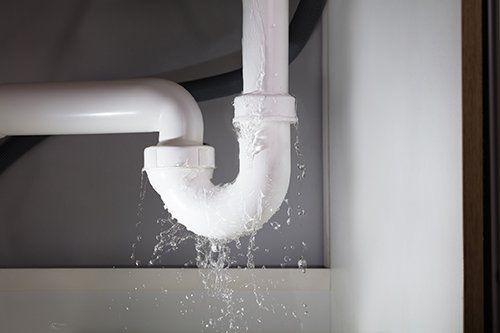Learn About 6 Common Reasons Behind Water Leaks at Home
Learn About 6 Common Reasons Behind Water Leaks at Home
Blog Article
We have stumbled upon this great article pertaining to Most Common Causes of Leaky Pipes listed below on the internet and think it made good sense to share it with you over here.

Leakages not just trigger waste of water however can additionally cause unnecessary damage to your residence and advertise undesirable organic growth. By recognizing and also looking for daily scenarios that create leakages, you can protect your home from future leaks and unnecessary damage.
Instant temperature changes.
Extreme temperature changes in our pipes can create them to expand and also acquire suddenly. This growth as well as contraction may trigger splits in the pipes, particularly if the temperature are listed below freezing.
Rusty water supply
As time goes by, your plumbing system ages and deterioration such as rust might start gnawing the pipelines. This could be the source of discoloration or warping on your water pipes. This calls for an assessment with your plumber immediately. If our plumbing system is old, think about replacing the pipes since they are at a greater threat of rust than the newer models.
Faulty Pipeline Joints
Pipe joints can weaken over time, resulting in water leaks. If you have noisy pipes that make ticking or banging noises, especially when the hot water is turned on, your pipe joints are probably under a lot of pressure.
Encroaching origins
Many water leaks start outside the home rather than inside it. You may observe wet patches or sinkholes in your lawn, and also that may suggest that tree roots are getting into water lines triggering water to permeate out.
Poor Water Connectors
At times, a leakage can be triggered by loose pipes and pipelines that provide your home appliances. In case of a water connections leakage, you may observe water running directly from the supply line or puddles around your devices.
Clogged Drains
Blocked drains pipes might be aggravating and inconveniencing, however they can occasionally wind up causing an overflow leading to rupture pipelines. Keep removing any materials that may decrease your drains pipes that might clog them to avoid such troubles.
All the above are reasons for leakages however not all water leakages arise from plumbing leakages; some leaks may originate from roof covering leakages. All leakages must be repaired promptly to prevent water damage.
Leaks not just trigger waste of water but can also create unnecessary damage to your residence as well as promote undesirable organic development. By looking and also comprehending for everyday scenarios that cause leakages, you can safeguard your residence from future leaks and also unnecessary damage. Today, we will certainly look at six leakage creates that may be creating your pipes to leak.
At times, a leakage can be caused by loose pipes and pipes that supply your devices. In instance of a water connections leakage, you may notice water running straight from the supply line or puddles around your appliances.
How To Check For Water Leak In Your Home
How To Check for Leaks
The average household's leaks can account for nearly 10,000 gallons of water wasted every year and ten percent of homes have leaks that waste 90 gallons or more per day. Common types of leaks found in the home are worn toilet flappers, dripping faucets, and other leaking valves. These types of leaks are often easy to fix, requiring only a few tools and hardware that can pay for themselves in water savings. Fixing easily corrected household water leaks can save homeowners about 10 percent on their water bills.
To check for leaks in your home, you first need to determine whether you're wasting water and then identify the source of the leak. Here are some tips for finding leaks:
Take a look at your water usage during a colder month, such as January or February. If a family of four exceeds 12,000 gallons per month, there are serious leaks.
Check your water meter before and after a two-hour period when no water is being used. If the meter changes at all, you probably have a leak.
Identify toilet leaks by placing a drop of food coloring in the toilet tank. If any color shows up in the bowl after 10 minutes, you have a leak. (Be sure to flush immediately after the experiment to avoid staining the tank.)
Examine faucet gaskets and pipe fittings for any water on the outside of the pipe to check for surface leaks.
Undetected water leaks can happen without the home or business owner even realizing. If you suspect a water leak, but not able to find the source. It is time to contact a professional water leak detection service, The Leak Doctor.
How To Find a Water Leak In Your Home
https://www.leakdoctor.com/blog/How-To-Check-For-Water-Leak-In-Your-Home_AE197.html

I ran across that content on How to detect water leaks in your home while exploring the search engines. Appreciated our piece of writing? Please share it. Help another person check it out. I appreciate reading our article about How to detect water leaks in your home.
Expert plumbing diagnostics and repair. Report this page